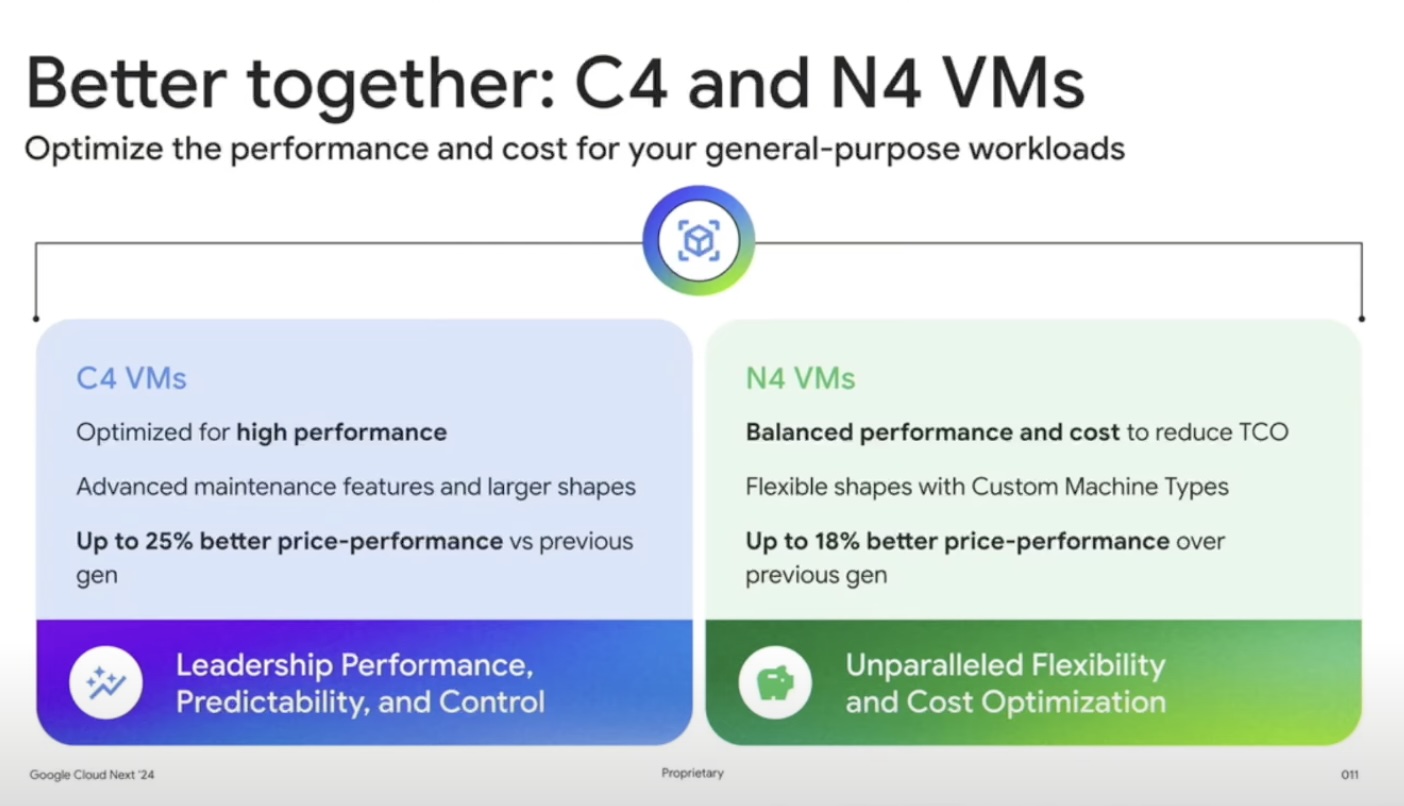As workloads evolve, industries are experiencing huge surges in compute needs. Data indicates a 10x growth in computing demand in enterprises.
The most dominant workloads driving this need are those that are AI-driven like language, vision, speech and recommendation systems. Other categories include cloud-first workloads like serverless and containerized, and enterprise workloads such as SAP, VMware and Microsoft.
“The challenges that we are seeing in the field today are exemplified by what AI is bringing to the table, that is dramatic increases in the compute requirements, in order to meet customers workloads,” noted Jeff Welsch, product management leadership at Google, during a Google Cloud presentation at the Cloud Field Day event.
In the category of CPU performance, Moore’s Law is failing. The law which states that transistor density on the chip will grow at 2x rate each year is now a questionable theory as we see the graph flattening out.
“5 to 10 years ago, we could all ride Moore’s Law that transistor counts are going to double along with the performance, and price is going to drop pretty regularly. We are still seeing transistor counts double but we’re not seeing a performance impact as such.”
For all types and tiers of workloads running on GCP, Google aims to offer top-notch performance, security, cost and sustainability benefits across the board.
“We bake these into the infrastructure from ground-up,” said Welsch.
But besides the default features, customers also require a purpose-built, customized infrastructure optimized for their workloads. Welsh introduced Titanium, a platform tuned for workloads of all shapes and sizes.
Balancing Heterogenous Workload Requirements with Titanium
Titanium presents a new generation of technical infrastructure on Google Cloud that is optimized for cloud.
“If you will break out of the server box, the sheet metal, where, at times, we find ourselves limited by the compute power or the I/O power. We’re trying to expand that and really disaggregate our performance capability,” Welsch stated.
Unveiled at Google Cloud Next last year, the platform underpins Google’s line of new compute instances and Hyperdisk block storage. Titanium provides compute and memory resources dynamically to enterprise workloads, meeting customers just where they are.
The secret sauce is offload processing. With the CPU juggling sundry computing, networking, storage and security tasks, workloads are left competing for resources. Titanium boasts of a new architecture that combines capabilities that are embedded in the larger Google platform, with features tailored for cloud use cases.
“Our approach is to offload within our underlying infrastructure that provides Google capabilities for all the properties.”
Titanium offload processors (TOPs) offload I/O and network processing from the host hardware and distribute them to silicon devices across the datacenter.
“Within the host, we have the standard offload capabilities. We’re going to offload your SSL encryption, the jumbo packet, segmentation, etc. But if we limit ourselves to the capacity of a smart NIC for example, there’s a set amount of finite capacity that a Smart Connect can do in terms of throughput.”
Augmenting on-host offloads, the tiered scale-out offloads take the infrastructure performance to the next level. The new tier runs outside the host CPU, adapting flexibly to the changing workload needs. Adjusting to the shifts and spikes, the system delivers the best performance required to run a workload optimally.
Titanium shows 80% performance improvement in CPUs for real-time workloads. “Because of this tiered offload, we can actually now tune not just the host, but our backend systems as well and so we’re able to deliver to our customers a 200,000 improvement in IOPS on Hyperdisk.”
Titanium leverages hardware root of trust that embeds infrastructure security in the servers. Workloads are protected by offloading security from the host.
New Virtual Machine Series Powered by Titanium
Welsch showcased the newest virtual machines for running general-purpose and specialized workloads.
“Google has a long history of hardware engineering,” he said, and the C4 and N4 VMs are its latest innovation.
The latest C4 VMs are specially optimized for high-performance, mission-critical workloads and come with a “controlled maintenance experience.” Welsh stated that C4 instances can deliver up to 25% better price-to-performance numbers compared to the previous generation.

The N4 family of VMs are optimized to support flexible workloads, and unlocks significant cost benefits through dynamic resource management capabilities.
Currently in preview and releasing later this year are Google’s Axion-based processors. Axion is Google’s Arm-based processors built to support general-purpose enterprise workloads. The new family of Arm-based C4A VMs are up to 50% more performant and 60% more energy-efficient than the comparable current-generation x86-based VMs.
Be sure to watch Google Cloud’s presentations from the Cloud Field Day event to learn about the experience GCP offers for Microsoft and VMware workloads. For more coverage on this, catch this episode of Gestalt IT Rundown where Stephen Foskett and Krista Macomber provide an overview of Google’s enterprise cloud offerings.

